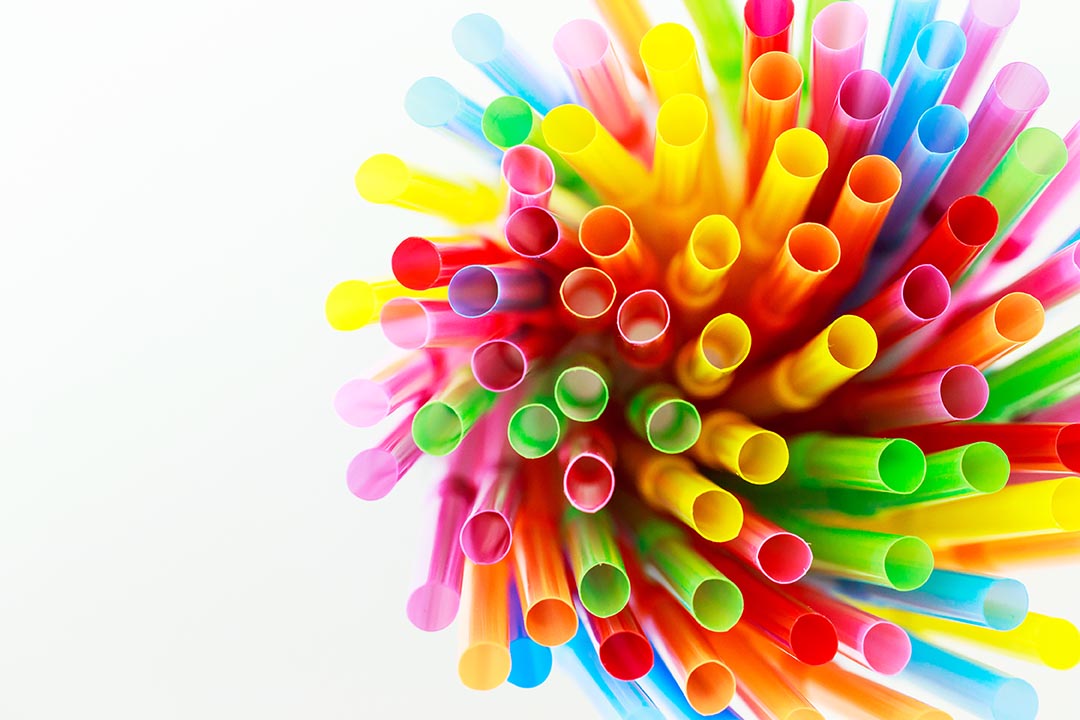
Non-compostable produce stickers, multi-material plastic packaging and degradability additives have been added to U.S. Plastics Pact’s list of problematic and unnecessary materials. | Neungstockr/Shutterstock
With the U.S. Plastics Pact on track to eliminate its initial 11 problematic plastics by 2025, the group decided to add three more items to the list.
The U.S. Plastics Pact, which formed in 2020, has 130 signatories, including large public and private organizations. In 2022, it released its initial list of “problematic and unnecessary materials” that should be avoided.
That list included:
- Cutlery;
- Intentionally added per- and polyfluoroalkyl substances often called PFAS or “forever chemicals”;
- Pigments that cannot be detected by optical sorters, such as carbon black;
- Opaque or pigmented PET bottles of any color besides transparent blue or green;
- Oxo-degradable additives, including oxo-biodegradable additives;
- Glycol-modified PET in rigid packaging;
- Label constructions such as adhesives, inks or difficult materials including PETG, PVC, PLA and paper;
- PS, including EPS;
- PVC, including polyvinylidene chloride;
- Stirrers and straws.
Now non-compostable produce stickers, multi-material plastic packaging and degradability additives are slated to be phased out by 2030. Oxo-degradable additives, which were on the original list, are still set for elimination by 2025. The new category covers all other degradability additives.
The latest additions were approved by signatories on April 16. The next evaluation period is 2026, and small-format packaging, plastic shopping bags, produce bags, non-compostable plastic beverage pods and multi-material rigid thermoforms are all under consideration, according to the 2024 report.
“Items on this list don’t have a clear path to circularity, but for a variety of reasons such as impact to carbon footprint of an item or lack of viable alternatives for a necessary material, elimination may not be the appropriate recommendation,” the pact said in a press release. “For these materials, key actions and needs for innovation are identified that will enable circularity if the necessary steps are taken across the value chain. The Evaluation List brings additional transparency for all stakeholders, providing a line of sight to ongoing focus areas.”
The Association of Plastic Recyclers also recently announced that degradable additives in packaging now will put the package into the non-recyclable category of its Design Guide for Plastics Recyclability. (APR owns Resource Recycling, which publishes Plastics Recycling Update.)
The U.S. Plastics Pact also has other goals, including reducing the use of virgin plastic among signatories by 30% by 2030, recycling 50% of plastic packaging by 2025 and averaging 30% PCR or biobased material in packaging by 2025. It recently extended the timeline on some of those goals.